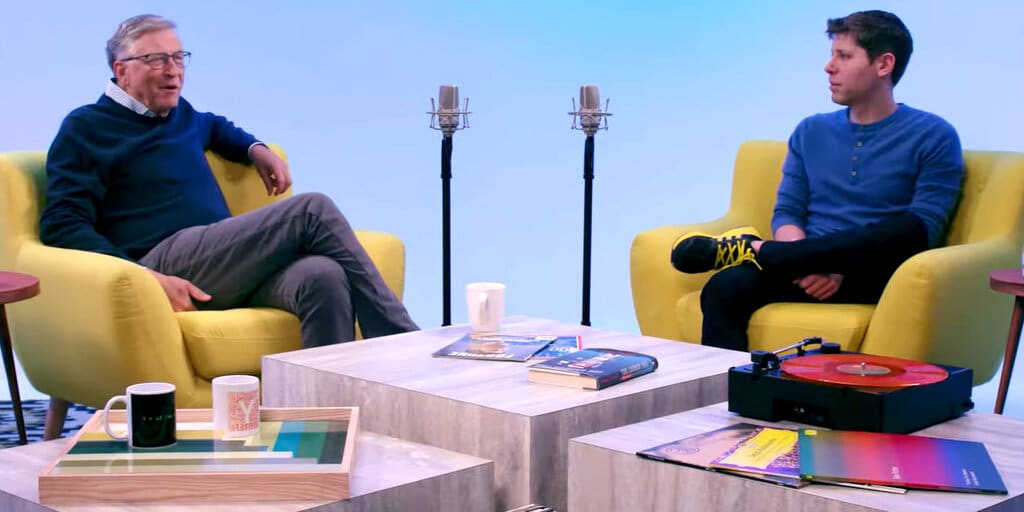Sam Altman sees a largely positive trade-off with technology that is rapidly racing to match human intelligence with the help of OpenAI, a leading global artificial intelligence organization.
“What we're leaving here is that we're going to have things that are somehow smarter than us,” he told technologist Bill Gates during a recent podcast interview.
Altman and Gates engage in an insightful conversation that peels back the layers of Altman's views on AI and the process, yielding deep insights. But first, Altman sought to reassure industry watchers following last year's failed corporate coup.
“A lot of people have noticed that the team has never felt more productive, or more optimistic, or better,” Altman said.
Altman touched on the philosophical aspects of AI, contemplating a future where AI surpasses human intelligence. He has previously shared his concerns about the social and economic impact of AI, calling for better regulations that ensure the development of AI.
For Altman, AI will lead to a society where workers can do more things for the same money, making them more productive for their employers.
“If you make a programmer three times more productive, not only can they write, they can do three times more things, they can … think of completely different things,” he said.
For Altman, the shift in work dynamics that AI is creating is inevitable.
“The part that I find a little scary is just the speed at which society has to adapt and the job market changes,” he said.
“The hypothetical idea that we did something bad by launching ChatGPT is something that bothers him,” Altman previously said. However, while worried about the future of those affected by AI, OpenAI is constantly pushing the boundaries of its GPT models, creating more powerful LLMs, a store of customized agents that can easily replace many jobs, and partnering with news sites. To train the future GPT-5 model on their content.
As for the future of AI, Altman emphasized the need for significant leaps in AI's cognitive capabilities. For him, multimodality (the ability of a model to understand input that goes beyond text and contains, for example, images or videos) plays a key role in determining which model will dominate the AI race.
However, the quality of the results will be the distinguishing factor, he said, and “the most important areas of improvement will be in reasoning ability… and also in reliability.”
Altman and Gates discuss the topic of regulatory and ethical constraints, exploring calls for an integrated global regulatory framework for AI. Given the broad impact of advanced AI systems, he again advocated a balanced, global governance approach:
“We're creating a community of ideas for a global regulatory body for these… future super-powerful systems,” he said.
Altman's reflections offer a multifaceted view of the future of AI: a mix of hope and wisdom, ingenuity and accountability. New players in the AI field are challenging OpenAI's dominance, and supervisors (just like everyday workers) are more concerned than ever.
That doesn't scare Alma.
“You know, it's frustrating and motivating and exciting, but it pushes us to be better and to work faster and to do things faster.
Stay on top of crypto news, get daily updates in your inbox.

